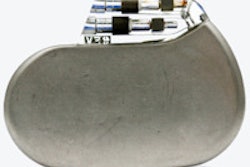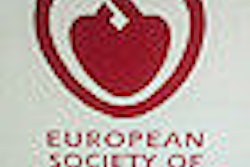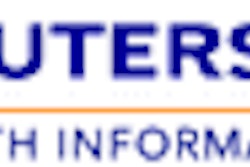
PARIS (Reuters) - Pacemakers and electric toasters have little in common, yet in Europe the same regulatory framework covers both, and a growing number of doctors think the system is no longer up to the job.
The issue has come to the fore at this year's annual meeting of the European Society of Cardiology (ESC), which is calling for an overhaul of Europe's "CE mark" scheme as far as it affects evaluating and approving new medical technology.
The push for change in Europe highlights a heated debate on both sides of the Atlantic over how to encourage innovation in often lifesaving devices while at the same time controlling risks.
In the United States, disgruntled medical technology firms look enviously at the relaxed regulatory regime in Europe and some Republicans have used the European example to scold the Food and Drug Administration over its slower approval process.
High-tech devices -- from coronary stents and artificial heart valves to replacement hips and knees -- can certainly get a green light faster in Europe than in the United States.
But that is not always a good thing, according to Dr. Alan Fraser, a cardiologist at Cardiff University, who has led a review of the European Union (EU) regulations for the ESC.
"It tends to be that clinical trials are done after approval in Europe but before approval in the United States," he said in an interview.
"Where there have been isolated instances of devices that were associated with complications, those have disproportionately occurred in countries that have earlier approval -- and that tends to be Europe."
Over the years there have been problems with a range of implanted devices, in heart medicine and other areas.
These have not been exclusively in Europe, as shown by last year's massive worldwide recall of artificial hips by Johnson & Johnson's DePuy unit.
Under a package of measures adopted more than 20 years ago, manufacturers selling devices in Europe must satisfy the "essential requirements" of safety and performance, but they do not necessarily need to show that a device benefits patients.
Call for single EU system
Europe also has no centralized process for approving medical devices, unlike the United States, so manufacturers are free to seek approval from any EU country. The suspicion is that this leads to "forum shopping," with companies choosing agencies offering the least burdensome and fastest reviews.
The ESC would instead like to see a single coordinated European system, with more premarket testing and postmarketing surveillance, as part of a move to close the gap between systems in different parts of the world.
The hope among doctors is that new proposals set to go before EU ministers in 2012 will address these issues.
"At least we want to agree on similar processes," said the ESC's president, Dr. Michel Komajda of Pitie-Salpetriere Hospital in Paris. "I don't know if it will end up with really global standards, but I think it is useful to have transatlantic discussions."
Similar issues are occupying his opposite number at the American College of Cardiology, Dr. David Holmes of the Mayo Clinic, following calls for a shake-up to the 510(k) system under which most U.S. devices are approved.
Dr. Holmes said a middle way needed to be found between the flood of new devices that often hit the market in Europe and the much lower number seen in the United States.
Nearly 80 coronary stents have been approved in Europe, for example, against only a handful in the United States.
"There must be some happy medium. Some of the devices that have had CE approval were then shown to be neither any better and they could have been worse. That was too lax. On the other hand, there are devices that are just being approved in the United States that aren't ever going to be used in Europe because they are too old," Dr. Holmes said.
Other than Johnson & Johnson, major makers of medical devices include Medtronic, Boston Scientific, and Abbott Laboratories.
By Ben Hirschler
Last Updated: 2011-08-30 16:25:28 -0400 (Reuters Health)
Copyright © 2011 Reuters Limited. All rights reserved. Republication or redistribution of Reuters content, including by framing or similar means, is expressly prohibited without the prior written consent of Reuters. Reuters shall not be liable for any errors or delays in the content, or for any actions taken in reliance thereon. Reuters and the Reuters sphere logo are registered trademarks and trademarks of the Reuters group of companies around the world.


















